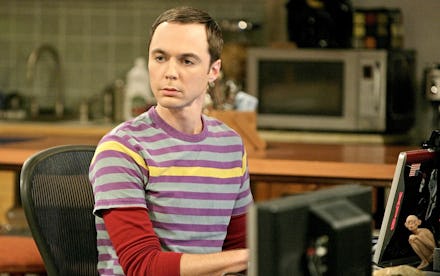These Are The TV Characters Getting Asperger's Wrong, From Someone Who Has It

When I was first diagnosed with Asperger's syndrome at the age of 14, Asperger's was barely on the public radar. One of my earliest experiences discussing the condition with others was having them make vulgar puns about the name.
To say the least, the last 15 years have seen a remarkable change in public awareness. Not only is Asperger's syndrome as commonly known as ADHD or OCD, it is the subject of ongoing medical debate (over whether it should be classified as a separate diagnosis or folded into the larger autism spectrum), the source of dangerous conspiracy theories (see Jenny McCarthy's anti-vaccination campaign), and a prominent feature of our popular culture.
As a person with Asperger's, I've noticed more and more television characters that I relate to. Some of these characters have never been publicly confirmed to have Asperger's, but as someone with it, I'm watching with an especially trained eye. Although there are plenty of mainstream characters to choose from, these are a few in particular who are worthy of mention and analysis. They run the gamut from characters who are true to the autism experience to those who make a cruel mockery of it. Let's take a look at how television is defining these characters.
Abed from Community is surprisingly accurate.
Image Credit: Wikimedia
Let's begin with Community. So much about Abed Nadir's alleged (heavily implied but never confirmed) Asperger's rings true that one is left to simply marvel at Danny Pudi's performance. The obsessively detailed expertise in specialized subjects (in his case, popular culture), the flat emotional affect, the awkward physical gestures and tendency to either make too little eye contact or too much. All of those quirks are fantastic, but the moment that best captures the Asperger experience occurred in the very first episode. After series protagonist Jeff Winger (Joel McHale) admits to the rest of his study group that he is too lazy to pass an upcoming Spanish exam, the rest of the members use facial expressions and body language to subtly communicate to each other (and not Jeff, who is feeling sensitive) that they intend to help him out. Then Abed, uncomprehending, blows the moment by bluntly asking, "What's going on?" That's Asperger's in a nutshell.
Sherlock Holmes from Sherlock is fanciful but well-intentioned.
Image Credit: Blogspot
Like Abed, Sherlock's (Benedict Cumberbatch) autistic qualities are implied, often talked about, but never confirmed or denied. Indeed, also like Abed, Sherlock's first big potential Asperger-y moment occurs in the first scene of the series, when a pretty morgue worker asks him if he'd like to get some coffee. Instead of picking up on the obvious invitation for a date, he coldly dictates how he would like his beverage ("Black, two sugars, I'll be upstairs") before leaving the room. Later, after she wipes off her lipstick, which she'd believed would impress him, he bluntly tells her that her mouth looks smaller now. Sherlock is full of little moments like this — and, of course, it is chock-full of the intense, savant-like analytical mindset that is characteristic of AS. Sherlock also self-identifies as a "high-functioning sociopath." I guess that leaves the jury out on the televised character, though I could write a whole other article on his literary counterpart.
Sheldon Cooper from The Big Bang Theory is cartoonish but harmless.
Image Credit: American Humanist
Although Sheldon Cooper (Jim Parsons) is often cited as the quintessential TV character with Asperger's, his quirks are too inconsistent to be definitely categorized as belonging on the autism spectrum. In fact, Sheldon is, if anything, nothing more or less than a run-of-the-mill nerd caricature, cut from the same cloth as Screech Powers or Steve Urkel. All of his esoteric interests and social faux pas can be traced back to those archetypes. If there is any doubt, one can simply turn to series co-creator Bill Prady, who explains that "calling it Asperger's creates too much of a burden to get the details right."
Sugar Motta from Glee is an offensive stereotype.
Image Credit: Fanpop
"I have self-diagnosed Asperger’s, so I can say whatever I want."
That, in one quote from McKinley High's Sugar Motta, epitomizes everything to despise in how people with Asperger's can be depicted, and it caused a huge uproar in the Asperger's community. Sure, the creators of Glee have the "out" of arguing that Sugar is not even a clinically diagnosed character, but the dismissive humor with which Glee treats Asperger's and its symptoms is worthy of rage. The character's deliberately obnoxious behavior and lack of personal accountability feed into the prejudices people with Asperger's face every day.
The Secret Society of Cynics from South Park is hilariously stupid.
Image Credit: Tumblr
I could point out that South Park's understanding of Asperger's syndrome is wildly inaccurate, but it is entirely possible that they intended it that way — and even if they didn't, the whole conceit of their Asperger's-focused episode is that people with Asperger's are part of a secret society which believes the world has literally been turned into feces (no comment on that).
Why is it worth mentioning? Simple: The name of the episode is Ass Burgers. And no matter how hard things may be, if you can't laugh at the little things in life, you can't really live at all.